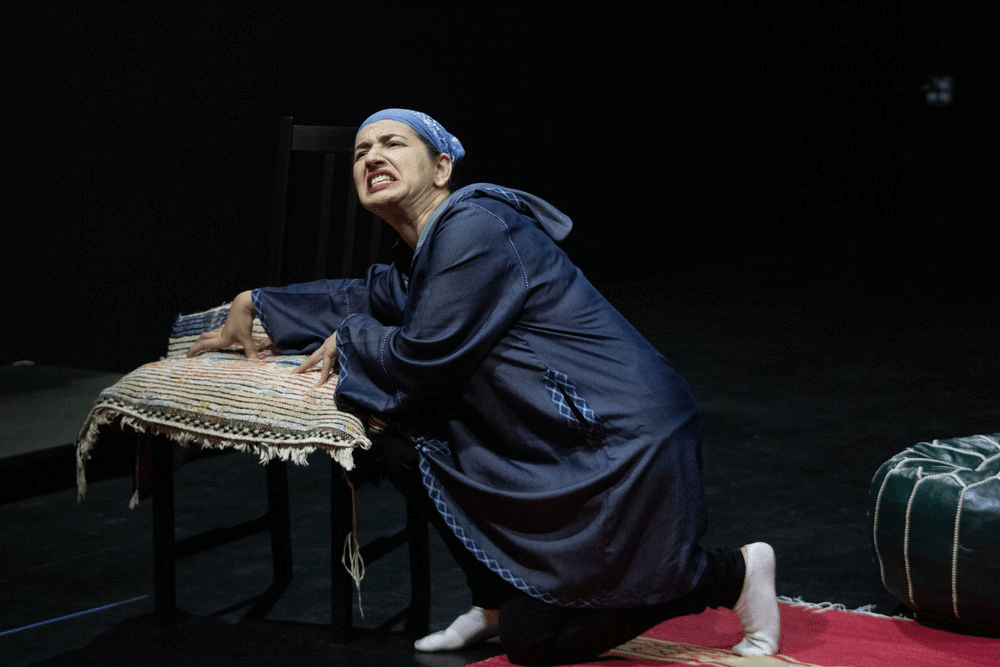Fringe Femmes 2022 are a bold cohort of women who are presenting new plays, original works and solo shows that have raised the bar on what it means to be an artist, tell one’s story and continue the work by any means necessary. Each year I am reminded that no matter the obstacles or the times in which we live, you cannot stop theatre as an art form from expanding, thriving and being a vessel to reveal, heal and nurture. LAFPI has the special ability to connect women from a wide variety of cultures and experiences together in their shared love of theatre.
This year continues to expand on that legacy and it is my honor to introduce you to Mareshah Dupree and Jairis Carter, the creators of Abortion Weekend. These two talents are widening the lens on performance, writing and creating in real-time a new way of existing in the theatre.
Constance Strickland: What’s been your biggest battle in terms of your development/process?
Mareshah Dupree & Jairis Carter: Our biggest battle was quite unique as the script was initially written for the screen. It was challenging to convert it for the stage especially because our show is a two-person show. Since the Fringe process is so fast-paced the script was undergoing edits all the way up until the opening night.
Constance: After the lights and the audience disappear what do you hope one takes away after seeing your show?
Mareshah & Jairis: We hope that everyone who is able to attend gains a better understanding of agape Love. We want them to remember that God is Love and their Love is unconditional.
Constance: What joy did you discover when creating your show? Did you face any obstacles? What has been the most delicious discovery?
Mareshah & Jairis: The greatest joy came on opening night when our loved ones attended and told us how proud and emotionally moved they were of the work we created. The biggest obstacles were self doubt, insecurities, and an aching inner fear that our families would be offended by the production. The most delicious discoveries were the realizations we made about each other. We learned so much about each other throughout the process putting up this production and it’s been beautiful to witness the growth that has occurred within us both.
Constance: How does it feel to have an opportunity to share your work with an in-person audience? COVID expanded in many ways how the work can be seen and done, what personally changed if anything for you in how you approached creating your show?
Mareshah & Jairis: It feels surreal. It’s so incredible that we are finally at the space to share our three-year passion project. We were both like “finally someone can see what we’ve been working on for the past three years.” The major change is the fact that we adjusted the film script for the stage, however we still do plan on making it a feature length movie as it will be our thesis film for CalArts. It is eye-opening to see the reactions in person and very gratifying. We are immensely grateful that we have been blessed with the opportunity to be the vessels that tell this story.
Constance: What influenced this new work? How long have you been sitting with this work? Why now?
Mareshah & Jairis: Our ultimate influence for this work has been from the Great Creator since they placed this idea on our hearts and simultaneously in both of our mouths three years ago. We said the words “Abortion Weekend” at the same time after a conversation with a friend about the multiple methods that women/femmes all over the world have used to terminate pregnancies. Our sisters have also had a profound impact on the work. Their personal experiences made the text more tangible and alive. This show is dedicated to them. Our friendship also bleeds through the text. The Fringe has been a goal of ours for a little over a year now and we both felt it would be the perfect place to bring our idea to life. It was simply a matter of coincidence that Roe vs. Wade had come back into the political debate. It’s all divine timing.






































